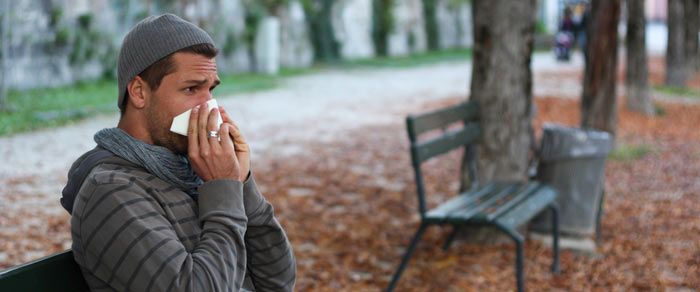
When the cold winds start to blow, out comes the winter health advice too. But which of these commonly held beliefs are based on fact and which ones are myth?
The cold makes you unwell
This notion has had parents and grandparents reprimanding their children for years about going outside with wet hair or walking shoeless on cold floors, and it turns out, they are partially right.
Being exposed to the cold or moisture won’t give you a cold, but if you are already carrying the virus in your nose it may allow symptoms to develop.
A study by the Common Cold Centre at Cardiff University showed that a group of 90 students who had their feet immersed in cold water for 20 minutes had twice as many colds in the following five days as students whose feet were not chilled. The researchers concluded that the chilling of feet affected blood vessels in the nose, which in turn inhibited their immune responses to the cold virus, therefore allowing the symptoms to develop.
Recently a study by Yale University also announced their discovery that the nose’s immune defences are weakened by cold weather.
We often carry cold viruses without experiencing symptoms, but when exposed to the cold our defences against rhinovirus infections are hampered, and this can lead to the onset of the illness.
Vitamin C stops a cold
If only there were a substance that could stop a cold in its tracks – unfortunately Vitamin C has only been proven to have a very limited effect on the length and severity of a cold.
Even regular ingestion of Vitamin C doesn’t seem to help stave off the viruses or the common cold. The bit of truth that does come out of this notion is that it is important to keep your body’s natural defences up during winter by eating a healthy diet rich in fruits and vegetables. Experts also recommend exercising and having plenty of warm drinks.
You lose most of your heat through your head
A number of different studies have shown that we don’t actually lose a disproportionate amount of heat through our heads, including the study by Thea Pretorius from the University of Canada in Manitoba.
The general consensus shows that although the head, neck, and chest tend to be more sensitive to cold than other parts of the body (which would explain why we tend to feel as though we lose more heat through those areas), covering one part of the body has as much effect as covering another.
Also, as author Claudia Hammond points out, the findings of the Pretorius study show that when the head is the only part of the body exposed, the body’s core temperature does drop more rapidly, possibly due to the concentration of blood vessels on the scalp. So, wearing your hat when it’s cold will still help you to stay warm, even if you don’t lose most of your heat through your head.
You don’t need sun protection in winter
You may not feel the effects of the sun’s heat and rays as much when it’s cold, but you still may need to apply sun protection. The wind, rain, and snow can also make sun cream wear off quickly. UV rays are stronger at higher altitudes, so winter sports enthusiasts are particularly at risk.
To fend off sun damage and keep your skin moisturised during winter, consider adjusting your skincare routine by:
- Swapping your facial wash for a cleansing cream
- Use a rich, moisturising facial oil or day cream beneath your sun protection
- Invest in high quality sun cream and reapply throughout the day
Vitamin D is a hormone that is made in the skin on exposure to sun light. It is thought that Vitamin D deficiency, which may contribute to ill health, is common in the UK. Taking Vitamin D supplements is recommended by the NHS.
You won’t have allergies in winter
Many people associate allergies with outdoor environmental factors like pollen. But many allergens are also found in the home, and with so much time spent indoors in winter, we are just as susceptible.
Common allergies are to things like house dust mites, pets, and mould – all of which are found in our homes, and get trapped indoors with tightly closed windows and doors keeping them in.
Even being exposed to different perfumes and colognes at parties can trigger your allergies. If you find yourself coughing, sneezing, wheezing, or have a runny nose or itchy eyes, it could be winter allergies.
The cleanest homes can still harbour mould spores, pet hairs, and dust mites, but there are ways to reduce these allergens in your own home – the NHS explains how.
The next time someone gives you some winter health advice, consider how much truth there is to it, or whether it’s a myth better left in the past. You can also use the Dr Fox services to help care for conditions that often flare up in winter such as eczema and rosacea.



